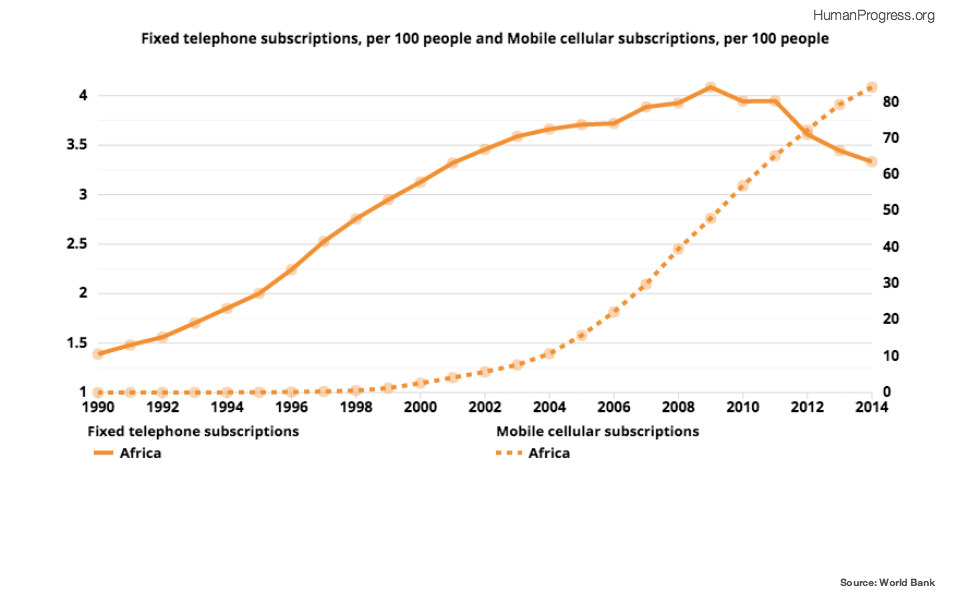What Cell Phones Reveal About the Failures of Government-Run Telecommunications
- OurStudio

- Mar 1, 2016
- 2 min read
A colleague of mine recently alerted me to the following quote from Charles Moore's book Margaret Thatcher: At Her Zenith. As Thatcher's official biographer remembered, "In 1981, the present author bought his first house. It had no telephone and he wished to install one, but was told by [British Telecom] that this would take six months because of a 'shortage of numbers.' The only way to speed this up was for his employer, the editor of The Daily Telegraph, to have a word with the chairman of the company, Sir George Jefferson. The device was installed in ten days. This was a classic example of how a nationalized industry would respond to string-pulling, but not to the ordinary customer's needs."
The British Telecommunications, as it was then known, was notorious for its slow and shabby service, and Lady Thatcher privatized it in 1984. At the time of privatization, Great Britain had 36 fixed telephone lines per 100 people. The United States had 47.
Of course, these are first world problems. Almost all African countries had state-owned and state-run telecommunications monopolies until recently. Some, including Kenya and Zambia, still retain a monopoly on the provision of landline services. No wonder, therefore, that the number of fixed telephone lines in Africa peaked in 2009 at 4 lines per 100 people. In Tanzania, there is just one landline per 100 people. The vast majority of Africans, in other words, never had reliable means of calling a doctor or a loved one.
The rise of the cell phone changed all that. In 2014, 84 percent of Africans had a cell phone. In addition to massively improved communications, cell phones enabled Africans to side-step another problem plaguing people in poor countries—limited banking opportunities (especially in the far-flung rural areas). Users of cell phone services, like Kenya's M-Pesa, can deposit, withdraw and transfer money, and pay for goods and services, without ever having to visit a bank or access a bank account on a computer.
The private sector has also been instrumental to mitigating the negative effects of African governments' failure to provide their people with adequate education and drinking water. For more data on communications and other indicators of human well-being, please visit www.humanprogress.org.





Comments